#jean françois lyotard
Text

Arakawa/Gins: Reversible Destiny, Guggenheim Museum, Guggenheim Museum Publications, New York, NY, 1997 [Saint-Martin Bookshop, Bruxelles-Brussel]






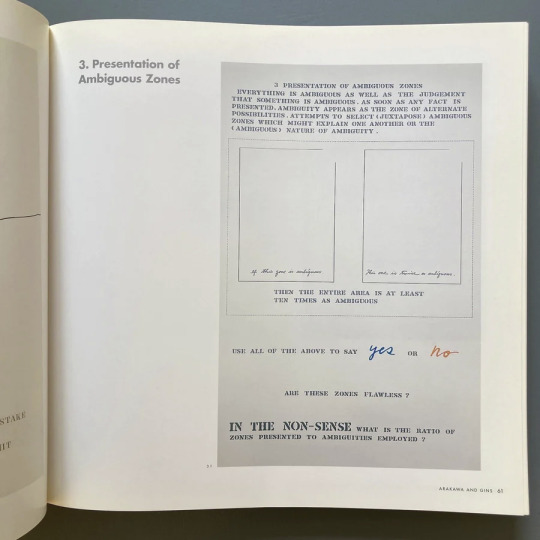



Foreword: Thomas Krens
Introductions: Michael Govan, and Jean-François Lyotard
Texts: Charles Haxthausen
Design: Michael Sumner, Burning Books
Editing, Design Assistance: Melody Sumner Carnahan
Cover: Arakawa and Gins
Exhibition: organized by Michael Govan, Guggenheim Museum SoHo, New York, NY, June 25 – August 31, 1997
#graphic design#typography#art#architecture#structure#geometry#exhibition#catalogue#catalog#cover#shusaku arakawa#madeline gins#thomas krens#michael govan#jean françois lyotard#michael sumner#melody sumner carnahan#burning books#solomon r. guggenheim museum#solomon r. guggenheim foundation#guggenheim museum publications#1990s
32 notes
·
View notes
Text
postmodernist voice: *it’s a discursive construction*
#it’s all a discursive construction#which is fair but at the same time it gets boring after a while#just write about anything else#(i do get it#it’s important)#but also quite frustrating and often feels like repeating the same thing over and over again#dark academia#academia#3 am thoughts#philosophy textpost#philosophy memes#postmodernity#post moderism#postmodern#foucault#derrida#jean françois lyotard#althusser#and others#20th century philosophy#discourse#discursive construction#Foucault deconstruction#mine#philosophy
10 notes
·
View notes
Quote
The old principle that the acquisition of knowledge is indissociable from the training (Bildung) of minds, or even of individuals, is becoming obsolete and will become ever more so. The relationship of the suppliers and users of knowledge to the knowledge they supply and use is now tending, and will increasingly tend, to assume the form already taken by the relationship of commodity producers and consumers to the commodities they produce and consume — that is, the form of value. Knowledge is and will be produced in order to be sold, it is and will be consumed in order to be valorized in a new production: in both cases, the goal is exchange. Knowledge ceases to be an end in itself, it loses its "use-value".
Jean-François Lyotard, The Postmodern Condition (Trans. Geoff Bennington and Brian Massumi)
62 notes
·
View notes
Text

«En origen, la ciencia está en conflicto con los relatos. Medidos por sus propios criterios, la mayor parte de los relatos se revelan fábulas. Pero, en tanto que la ciencia no se reduce a enunciar regularidades útiles y busca lo verdadero, debe legitimar sus reglas de juego. Es entonces cuando mantiene sobre su propio estatuto un discurso de legitimación, y se la llama filosofía. Cuando este metadiscurso recurre explícitamente a tal o tal otro gran relato como la dialéctica del Espíritu, la hermenéutica del sentido, la emancipación del sujeto razonante o trabajador, se decide llamar “moderna” a la ciencia que se refiere a ellos para legitimarse.»
Jean-François Lyotard: La condición postmoderna. Cátedra, pág. 9. Madrid, 2000
TGO
@bocadosdefilosofia
@dies-irae-1
#jean-françois lyotard#lyotard#la condición postmoderna#postmodernidad#ciencia#relato#relatos#metadiscursos#legitimación#filosofía#dialéctica del espíritu#dialéctica#hermenéutica#hermenéutica del sentido#emancipación#sujeto razonante#sujeto#trabajador#ciencia moderna#metanarrativa#metarelatos#cultura postmoderna#modernidad#grandes narrativas#teo gómez otero
3 notes
·
View notes
Photo
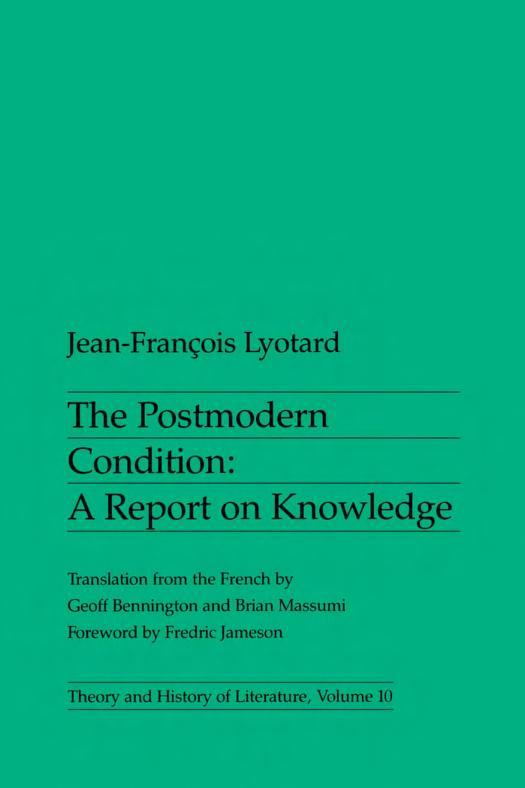
light summer reading.
https://archive.org/details/theory-and-history-of-literature-jean-francois-lyotard-postmodern-condition-the-
4 notes
·
View notes
Photo

French philosopher, sociologist and literary theorist Jean-François Lyotard
#Lyotard#Jean-François Lyotard#Jean-Francois Lyotard#France#French#sociology#philosophy#literary theory#literature#1998#1990's#1900's#1924#1920's#Versailles#Paris
3 notes
·
View notes
Text
Žarko Paić: Libidinalna represija/depresija
Jean-François Lyotard
Uz Lyotardovu Économie libidinale, (Minuit, Pariz, 1974.)
Odvratna gramzivost našeg doba koju susrećemo svakodnevno u svim aspektima života proizlazi iz hipertrofije ovog kognitivno-dionizijskoga kapitalizma u kojem potrošnja prethodi proizvodnji a ne obratno. Jean-François Lyotard je u svojem ranome djelu Libidinalna ekonomija dao savršenu dijagnozu ovog stanja stvari u…
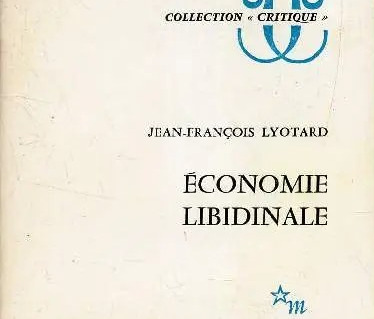
View On WordPress
0 notes
Text
Monarquía liberal versus sindicalismo comunista/Zoé Valdés
Origen: Monarquía liberal versus sindicalismo comunista

View On WordPress
0 notes
Text

Persona 2 Innocent Sin for the Sony PSP presents unique narrative rich with psychological and metaphysical themes that invite a deep philosophical analysis. This game, the second in the Persona series, explores complex issues such as the nature of self, the power of rumor and belief, and the intersection of fate and free will, all of which can be examined through the lenses of existentialism, pragmatism, and postmodernism. The game's main characters, including Tatsuya Suou, Maya Amano, Lisa Silverman, Eikichi Mishina, and Jun Kurosu, each embody distinct philosophical inquiries.
1. Existential Themes and the Construction of Self:
"Persona 2: Innocent Sin" dives into existential questions of identity and authenticity. Jean-Paul Sartre’s concept of 'existence precedes essence' is central to understanding the characters' journeys, particularly Tatsuya's struggle with his past and future selves. Sartre's assertion that people are condemned to be free, forced to choose and define their essence, resonates with Tatsuya's confrontation with his own actions and their consequences, embodying the existential burden of freedom and choice.
2. Pragmatism and the Power of Belief:
The game's central mechanic, where rumors become reality, aligns closely with William James's pragmatism, specifically his idea that the truth of an idea is determined by its practical effects. In "Persona 2," the collective beliefs and rumors of the population reshape reality, suggesting that truth is a social construct influenced by communal consent rather than objective fact. This mechanism is a literal manifestation of James’s claim that beliefs are true if they prove useful. Lisa Silverman's and Eikichi Mishina's personal struggles with identity and acceptance highlight how personal and societal beliefs can shape one's reality and self-perception.
3. Postmodernism and Narrative Identity:
"Persona 2" also engages with postmodern themes, particularly through its exploration of narrative and the fluidity of identity. The game's plot, heavily reliant on the characters' perceptions and the mutable nature of truth, echoes Jean-François Lyotard's definition of the postmodern condition as one of skepticism towards grand narratives. Each character, including Jun Kurosu’s complex backstory and dual identities, serves as a case study in how narratives shape individual identity and social reality, emphasizing the postmodern idea that identity is a narrative construction rather than a fixed essence.
4. Nietzschean Perspectives on Power and Morality:
Friedrich Nietzsche's ideas on morality, power, and the will to power are embodied in the game's darker themes, particularly in the characters' battles against demonic forces and their own darker impulses. Nietzsche's critique of traditional moral values and his emphasis on the creation of one’s own values are reflected in the characters' rejection of their destined paths and their decisions to forge their own futures, challenging the predetermined narrative laid out by higher powers.
5. The Dialectic of Freedom and Fate:
The tension between fate and free will in "Persona 2" invites a Hegelian dialectical analysis. Hegel’s philosophy, which posits that freedom is the recognition of necessity (the necessity of the world's rational structure), can be applied to understand the characters' gradual realization and acceptance of their roles in the world. Maya Amano, in particular, embodies the Hegelian journey toward achieving freedom through the synthesis of personal desires (thesis) and the realities of the world (antithesis).
6. The Ethics of Memory and Forgetting:
Lastly, the game’s exploration of memory and forgetting taps into ethical questions explored by philosophers like Avishai Margalit on the ethics of remembering. The game challenges characters to decide what should be remembered and what should be forgotten, raising questions about the moral implications of memory and the role of forgetting in healing and identity.
In conclusion, "Persona 2: Innocent Sin" offers a rich narrative canvas for philosophical exploration, touching on existentialism, pragmatism, postmodernism, Nietzschean philosophy, Hegelian dialectics, and the ethics of memory. Through its complex characters and unique narrative mechanics, the game provides a profound commentary on the nature of self, the power of belief, and the interplay between fate and free will, inviting players to reflect on the profound philosophical questions embedded in its world and story.
16 notes
·
View notes
Text
Ismeritek a liberális, szakállas bácsi politikai-ideológiai univerzum eredettörténetét?
In 1977, a petition was addressed to the French parliament calling for the abrogation of several articles of the age of consent law and the decriminalization of all consensual relations between adults and minors below the age of fifteen (the age of consent in France). A number of French intellectuals – including such prominent names as Louis Aragon, Michel Foucault, Jean-Paul Sartre, Jacques Derrida, Louis Althusser, Roland Barthes, Simone de Beauvoir, Gilles Deleuze, Félix Guattari, Michel Leiris, Alain Robbe-Grillet, Philippe Sollers, Jacques Rancière, Jean-François Lyotard, Francis Ponge, Bernard Besret and various prominent doctors and psychologists – signed the petition.
Michel Foucault argued that children are able to give consent to sexual relations, saying that assuming “that a child is incapable of explaining what happened and was incapable of giving his consent are two abuses that are intolerable, quite unacceptable.”
Foucault, Sartre, and newspapers such as Libération and Le Monde each defended the idea of child-adult sexual relationships.
Michel Foucault stated that the petition was signed by himself, by the novelist/gay activist Guy Hocquenghem, the actor/play-writer/jurist Jean Danet, pediatrician and child psychoanalyst Françoise Dolto and also by people belonging to a wide range of political positions
6 notes
·
View notes
Text
"The English unemployed did not have to become workers to survive, they – hang on tight and spit on me – enjoyed the hysterical, masochistic, whatever exhaustion it was of hanging on in the mines, in the foundries, in the factories, in hell, they enjoyed it, enjoyed the mad destruction of their organic body which was indeed imposed upon them, they enjoyed the decomposition of their personal identity, the identity that the peasant tradition had constructed for them, enjoyed the dissolutions of their families and villages, and enjoyed the new monstrous anonymity of the suburbs and the pubs in morning and evening."
--Jean-François Lyotard, Libidinal Economy, p. 111.
7 notes
·
View notes
Text
Excerpt from "Disjuncture and Difference in the Global Cultural Economy" (1990), Arjun Appadurai
Iyer's own account of the uncanny Philippine affinity for American popular music is rich testimony to the global culture of the hyperreal, for somehow Philippine renditions of American popular songs are both more widespread in the Philippines, and more disturbingly faithful to their originals, then they are in the United States today. An entire nation seems to have learned to mimic Kenny Rogers and the Lennon sisters, like a vast Asian Motown chorus. But Americanization is certainly a pallid term to apply to such a situation, for not only are there more Filipinos singing perfect renditions of some American songs (often from the American past) than there are Americans doing so, there is also, of course, the fact that the rest of their lives is not in complete synchrony with the referential world that first gave birth to these songs.
In a further globalizing twist on what Frederic Jameson has recently called "nostalgia for the present" (1989), these Filipinos look back to a world they have never lost. This is one of the central ironies of the politics of global cultural flows, especially in the arena of entertainment and leisure. It plays havoc with the hegemony of Eurochronology. American nostalgia feeds on Filipino desire represented as a hypercompetent reproduction. Here, we have nostalgia without memory. The paradox, of course, has its explanations, and they are historical; unpacked, they lay bare the story of the American missionization and political rape of the Philippines, one result of which has been the creation of a nation of make-believe Americans, who tolerated for so long a leading lady who played the piano while the slums of Manila expanded and decayed. Perhaps the most radical postmodernists would argue that this is hardly surprising because in the peculiar chronicities of late capitalism, pastiche and nostalgia are central modes of image production and reception. Americans themselves are hardly in the present anymore as they stumble into the mega-technologies of the twenty-first century garbed in the film-noir scenarios of sixties' chills, fifties' diners, forties' clothing, thirties' houses, twenties' dances, and so on ad infinitum.
As far as the United States is concerned, one might suggest that the issue is no longer one of nostalgia but of a social imaginaire built largely around reruns. Jameson was bold to link the politics of nostalgia to the postmodern commodity sensibility, and surely he was right (1983). The drug wars in Colombia recapitulate the tropical sweat of Vietnam, with Ollie North and his succession of masks - Jimmy Stewart concealing John Wayne concealing Spiro Agnew and all of them transmogrifying into Sylvester Stallone, who wins in Afghanistan - thus simultaneously fulfilling the secret American envy of Soviet imperialism and the rerun (this time with a happy ending) of the Vietnam War. The Rolling Stones, approaching their fifties, gyrate before eighteen-year-olds who do not appear to need the machinery of nostalgia to be sold on their parents' heroes. Paul McCartney is selling the Beatles to a new audience by hitching his oblique nostalgia to their desire for the new that smacks of the old. Dragnet is back in nineties' drag, and so is Adam-12, not to speak of Batman and Mission Impossible, all dressed up technologically but remarkably faithful to the atmospherics of their originals.
The past is now not a land to return to in simple politics of memory. It has become a synchronic warehouse of cultural scenarios, a kind of temporal central casting, to which recourse can be taken as appropriate, depending on the movie to be made, the scene to be enacted, the hostages to be rescued. All this is par for the course, if you follow Jean Baudrillard or Jean-François Lyotard in a world of signs wholly unmoored from their social signifiers (all the world's a Disneyland). But I would like to suggest that the apparent increasing substitutability of whole periods and postures for one another, in the cultural styles of advanced capitalism, is tied to larger global forces, which have done much to show Americans that the past is usually another country. If your present is their future (as in much modernization theory and in many self-satisfied tourist fantasies), and their future is your past (as in the case of Filipino virtuosos of American popular music), then your own past can be made to appear as simply a normalized modality of your present.
2 notes
·
View notes
Quote
Consider the form of popular sayings, proverbs, and maxims: they are like little splinters of potential narraties, or molds of old ones, which have continued to circulate on certain levels of the contemporary social edifice. In their prosody can be recognized the mark of that strange temporalization that jars the golden rule of our knowledge: "never forget. ":
Jean-François Lyotard, The Postmodern Condition (Trans. Geoff Bennington and Brian Massumi)
58 notes
·
View notes
Text


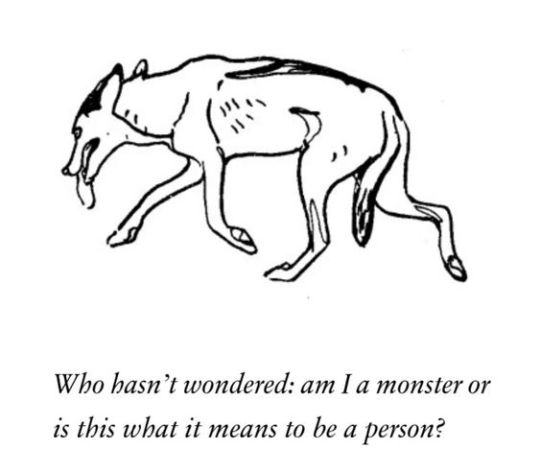






anne carson / brutus - the buttress / clarice lispector / ocean vuong / jean-françois lyotard / butterflies on carcass near iguazu falls argentina 1980 / apotheosis / anne carson / unknown, with michel foucault / brutus - the buttress
musings on adva nerethi
14 notes
·
View notes
Photo
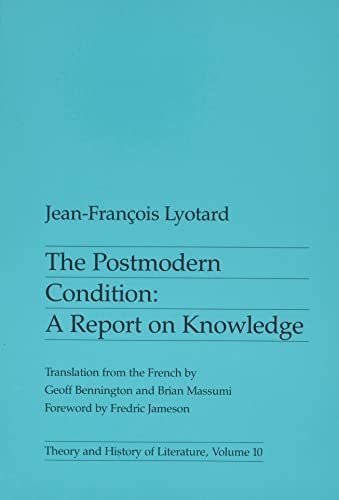
https://archive.org/details/theory-and-history-of-literature-jean-francois-lyotard-postmodern-condition-the-/mode/2up
The object of this study is the condition of knowledge in the most highly developed societies. I have decided to use the word post- modern to describe that condition. The word is in current use on the American continent among sociologists and critics; it designates the state of our culture following the transformations which, since the end of the nineteenth century, have altered the game rules for science, literature, and the arts. The present study will place these transformations in the context of the crisis of narratives. 1979
2 notes
·
View notes
Text
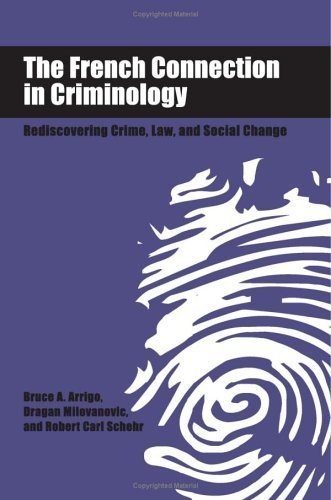
Winner of the 2005 Outstanding Book Award presented by the Crime and Juvenile Delinquency Division of the Society for the Study of Social Problems
This is the first comprehensive, accessible, and integrative overview of postmodernism's contribution to law, criminology, and social justice. The book begins by reviewing the major contributions of eleven prominent figures responsible for the development of French postmodern social theory. This "first" wave includes Roland Barthes, Jean Baudrillard, Hélène Cixous, Gilles Deleuze, Jacques Derrida, Michel Foucault, Félix Guattari, Luce Irigaray, Julia Kristeva, Jacques Lacan, and Jean-François Lyotard. Their respective insights are then linked to "second" wave scholars who have appropriated their conceptualizations and applied them to pressing issues in law, crime, and social justice research. Compelling and concrete examples are provided for how affirmative and integrative postmodern inquiry can function meaningfully in the world of criminal justice. Topics explored include confinement law and prison resistance; critical race theory and a jurisprudence of color; media/literary studies and feminism; restorative justice and victim-offender mediation processes; and the emergence of social movements, including innocence projects and intentional communities.
VEDETTE
2 notes
·
View notes